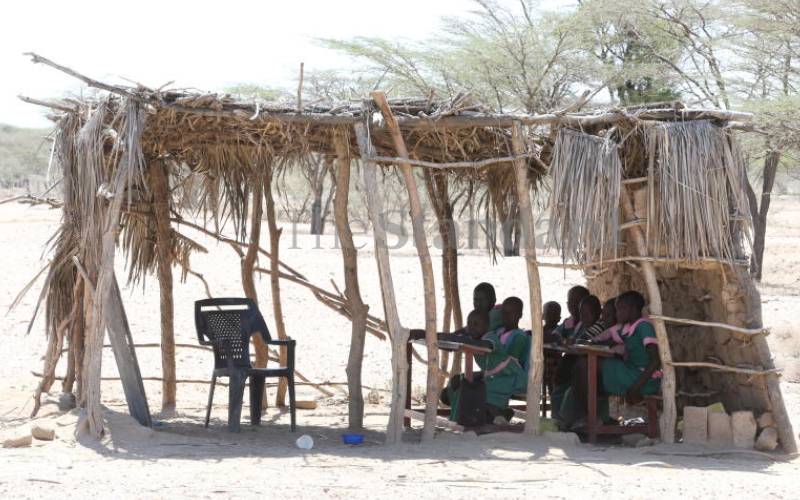×
The Standard e-Paper
Stay Informed, Even Offline

Pupils in a makeshift classroom in Turkana County, December 2020. [Stafford Ondego, Standard]
Amid hard economic times and ‘big-budget’ Competency-Based-Curriculum (CBC), the State has burdened parents with unnecessary school levies and failed to address teachers’ professional and labour concerns.







